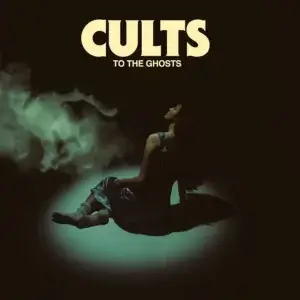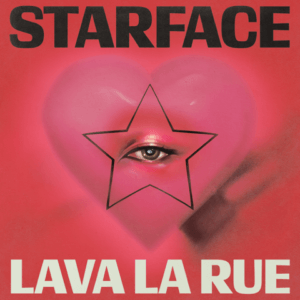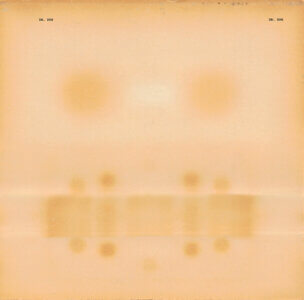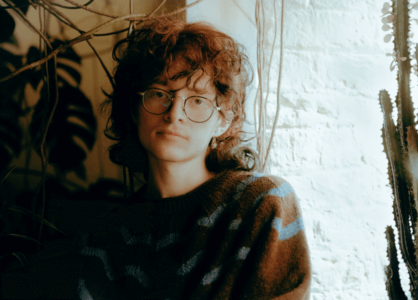Yot Club Refuses To Sit Still
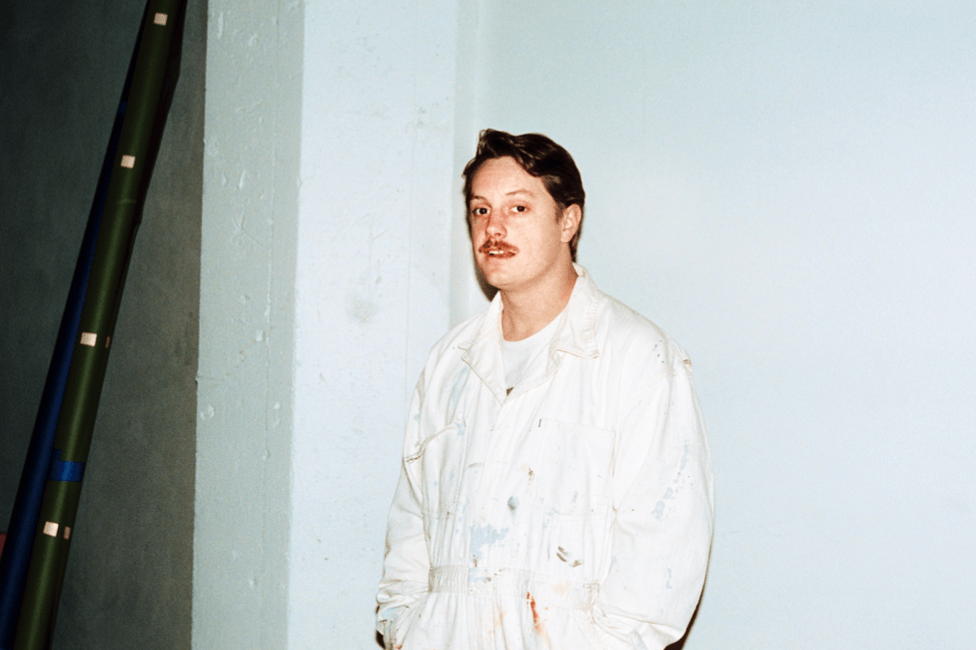
On the closing track of Ryan Kaiser’s forthcoming second record Rufus (due March 29th) under the Yot Club moniker, the Mississippi-born and New York-based musician and producer sings frankly about feeling as though he’s lost touch. And yet, however far removed he feels from his immediate surroundings, Kaiser is very much in tune with his feelings and sense of self. It’s not exactly appealing to acknowledge one’s despondency, and yet, Yot Club does so with great musical vigor and earnestness on his most expansive and sonically explorative arrangements. On previous releases, Kaiser existed in inviting lo-fi worlds and intimate settings from which he delivered performances that felt as though he was singing directly to you.
Despite his latest material demonstrating a much broader scope, the endearing intimacy of earlier EPs remains intact through Kaiser’s lyricism on Rufus. It’s especially evident on the likes of Yot Club’s latest single “Nostalgia”, where he unwittingly closes a chapter in his life and comes to terms with having to move on from past experiences and bravely navigate unknown paths. However, in the age of technology, memories aren’t so easily discarded, as he sings “A picture on the phone takes you back to the day.” Kaiser masterfully incorporates details of day-to-day life that seem small in the moment but can leave lasting marks that you can’t help put pick away at, like a scab, even though you know that the healing process will be quicker when left alone. Kaiser’s colloquial turn of phrase is immensely compelling, as is the sense of familiarity in his arrangements, which transport you back to the mid 2010s and the output of The Drums and MGMT from that era. Rufus, in that way, is an immensely comfortable and comforting record.
Ahead of Rufus’s release, and in the days leading up to Yot Club sharing “Nostalgia” as their latest single, Ryan Kaiser spoke to Northern Transmissions about going viral on TikTok, how different places and people impact his music and collaborating with Grammy nominated producer Tommy English on Rufus.
Northern Transmissions: Hey Ryan, how’re you? Where are you right now?
Ryan Kaiser: I’m pretty good, I’m in Philadelphia right now. My girlfriend is looking at some apartments because she’s just got a job here. So we’re staying here for around two weeks.
NT: You moved to New York recently enough; at the end of 2022, right? Are you thinking about moving to Philadelphia?
RK: Yeah, for sure. I’m definitely not naive in the sense that I want to be in New York forever. I’m getting that out of my system. I have friends there, and it’s fun, but it’s not sustainable for me. It’s something that’s fun and different for the time being. But, the price of everything here, not even talking about rent, you know, but having to pay eight dollars for an oat milk coffee every single day. It’s a rip-off! I don’t have generational wealth or anything to justify me spending so much money to be in this place. So yeah, if my girlfriend’s going to be living in Philadelphia, I’ll probably make my way down there.
NT: Of course. You’re from Mississippi and you lived in Nashville for a whole, you’re in New York now and Philadelphia is potentially on the cards, it seems like you really embrace change and experiencing new places. How have you found each of those places and the musical communities? And how, if at all, have they informed or inspired your music?
RK: I love living in different places. I like not being super tied to somewhere. You make more friends that way and you get to know more people. I think it does help musically, too. I guess being somewhere new, you’re like, ‘Alright, I’m in my so-and-so-era. It’s time to make this type of music’. Also, [the music] is ever-changing because the surroundings around you keep changing.
I grew-up in Mississippi and I went to college there and then I was dating somebody that got a job in Nashville and so I was like, ‘Let’s move to Nashville’. I liked the music scene there. I liked East Nashville a lot, which is where you find the more alternative community for music. After that relationship ended, I got FOMO because a lot of my friends lived in New York at that point and so I was like, ‘Okay, I’m living in New York for a little bit’. But, like I said, I’m not emotionally tied to New York. I think it’s overwhelming not only for me, but for my dog, too! We’re both ready to probably get out.
NT: You’ve been making music as Yot Club since 2019 and in the initial years you had 3 jobs and were also studying and you saw music as a hobby. Your song “YKWIM?” from your 2019 EP Bipolar became a viral hit on TikTok and now has over 600 million streams on Spotify. What was it like when you realized that that song was taking off?
RK: It took me forever to realize it! I wasn’t really checking stats or checking numbers at that time, I was just making music because it was fun. It wasn’t an outlet to make money or anything because I was making so little money off of it. With everything in life at the time, I was forced to be places; I had to go to class and I had to go to work, so music was the one thing where I felt like I had some autonomy and control. And so, I was just making a lot of music, releasing a lot of music, and not really looking at the stats. Then I noticed that the song started doing like 50,000 streams a day and then 100,000 and then 500,000. I started getting emails from different major labels with offers that I didn’t even know how to read! I had to get a lawyer.
Basically, the way I found out it was viral on TikTok was somebody eventually sent me a TikTok and they were like, ‘Isn’t this your song?’ When I clicked on the song on TikTok, I saw that people had already made like 30,000 videos using the song by the time I became aware that it was even viral. After I realized this, I was ready for it to start dying down. I was like, ‘Okay, well it had its moment now, it’s time to die out’. It’s still getting loads of plays to this day, I don’t fully understand it. It’s like it broke something in the algorithm. But, yeah, it took me forever to find out. I didn’t even have TikTok on my phone!
NT: It must be such an unusual time to be an artist with how social media can play such a significant role in how you can build an audience and use it as a message board for tour dates and album announcements. It also creates opportunities for you to reach out to artists you admire to collaborate. On your forthcoming record Rufus, there’s a line in the song “Pixel” where you sing: “This technology makes me so aware of how small I am”. What is your relationship with social media, as an artist, like?
RK: I mean, it’s definitely a useful tool and can be utilized in a positive manner. But it’s tricky. You want to be active on social media, but then if you’re too active on social media, then what is your life? Always being on an app?! That’s a horrible life. So, I guess it’s a balance, I don’t particularly see myself as being very good at social media.
With that line, I guess I was talking about how if you’re from a small town, in the past, and you never moved then the world would probably seem pretty small. Your worldview is really limited, but now you have the internet and you can be aware of bands that are big in Korea and Germany. Suddenly, it’s not just the town around you. It’s like you’re everywhere and everything is all there at once and it’s overwhelming and it can also make you feel like you haven’t done anything.
NT: There’s something about your music, and it’s particularly evident across Rufus, that has a sonic scrapbook feel to it in how you incorporate different melodic elements. It often reminded me of the early to mid-2000s when I would log onto my computer and spend hours exploring bands I liked and wanted to find more like them. Were you someone who spent your teenage years looking for new and interesting music to show your friends?
RK: Totally! My friend Grant was the really good music discovery person in our friend group and I was always trying to beat him to bands and find out about things before him. I was also a Pitchfork nerd, I loved reading it and stuff like that. I was into trying to discover stuff and then I definitely wanted this project to be kind of nostalgic. There are different ways to make something sound nostalgic. I used to be like, ‘Everything has to be original. I have to come up with chord progressions that have never been used before and create melodies that people have never heard before’. But then I looked at the stuff that I listened to and enjoyed personally and with a lot of that, it wasn’t like recycled chord progressions or recycled melodies but the artist had put some sort of twist on it. They’ve put some sort of angle on it to make it their own and that way you get the benefit of the nostalgic chord progression or the nostalgic theme that you’ve maybe heard a few times before. But they’re adding a new flavor to it. They’re doing something a little bit different production-wise. There’s something in there that makes it interesting. You can write a great song that’s just like G, C and D chords but it’s got to be interesting somewhere; maybe in the production or maybe in the lyrics. It made me realize that you can lean into these like common chord progressions.
You can lean into these common song arrangements that you don’t have to be like super weird and experimental. People like a little bit of predictability, it’s comforting. It’s kind of like comfort food. It’s something people have had before. It’s not meant to test you or it’s not an acquired taste. I want something that’s likable from the jump. So, nostalgia is a good thing for that because it’s based on something that people already like.
NT: Rufus very much retains the style you’ve cultivated as Yot Club over the last few years but it also demonstrates a development in your production. This record feels bigger and more sonically ambitious. You’ve very much been a one-person operation taking care of all aspects of your music but on this record you had songwriting sessions with Tommy English, who’s written with Carly Rae Jepsen and Kacey Musgraves, as well as songwriters Harrison Lipton and Charli Adams and Patrick Wimberly, who was in Chairlift and has worked with Lil Yachty, Blood Orange and MGMT came in to mix the record. Did you enjoy the process of collaborating?
RK: When I started doing music full-time, I worked with different people on their stuff, either producing things or playing guitar on a song. It feels good to work on songs that aren’t my own, sometimes. From doing that I’ve made so many friends and made some connections and last year I decided to just do some random writing sessions where the goal was vague. It was usually just me and one other person and we’d get together and just make something. It wasn’t even clear if we were going to make something for me or them or maybe even for another artist completely. I think I did about 15 or 20 of those sessions last year and a bunch of different stuff from them happened to sprout into my own songs.
In the past, when I was in school, I would have never had the opportunity to work with people like Tommy English, who works with like Olivia Rodrigo and other Grammy winning artists. Sure, I love the comfort and process of working alone but who would I be to turn down an opportunity to work with someone with that experience?! It’s too good of an opportunity. Harrison and Charlie are also both amazing writers. So, yeah, if and when the opportunity comes, even though the thought of working with other people can be scary because it’s a new thing, it’s always been good for me and it’s a good creative workout for the brain.
NT: Lyrically, Rufus is quite introspective and effectively pulls the audience closer to you. I think of “Nostalgia” when you sing about not wanting to lose a particular feeling, or on “2084” when you mention feeling numb and insecure about things you know. It feels like this was an important record for you to write about and perhaps process past experiences? Can you talk me through your lyrical approach and how you decide how much of yourself to put into the songs because I read that Rufus, while not exactly a direct representation of you, is a sort of guide through experiences you’ve had.
RK: Yeah, I guess it mostly depends on what’s going on at the time. When I first started the album it was a little bit after a recent break-up so I think I was being a little more vulnerable and emotional. Then as things chill out and change, you start to write about other stuff that’s going on around you. I guess it’s just about mental state and what’s going on in life at the time will influence what you write about. “2084” is probably the first song I made for the album and it was right at that time when I was still living in Nashville. I hadn’t moved to New York yet. Once I moved to New York I made like three songs for Rufus, but the vibe completely changed. I felt fresh and reinvented and it really helped the songs to flow out after that.
NT: Is there a line that you feel captures the overall mood of the record or how you were feeling when you were writing it?
RK: Oh that’s hard! I’m just thinking of every line on top of each other! I like the line in “Pixel”, the one you mentioned earlier because it’s kind of a feeling you’ll see in more of the world and being overwhelmed and scared by it.
NT: Finally, what are you most excited about people hearing the record when it comes out?
RK: I’m excited to see people’s reaction. I’ve heard these songs a trillion times while making them, so I’d love to see people’s reaction and see how they feel about it compared to the other things I’ve done.
Pre-order Rufus by Yot Club HERE
Latest Reviews
Tracks
Advertisement
Looking for something new to listen to?
Sign up to our all-new newsletter for top-notch reviews, news, videos and playlists.


